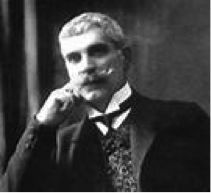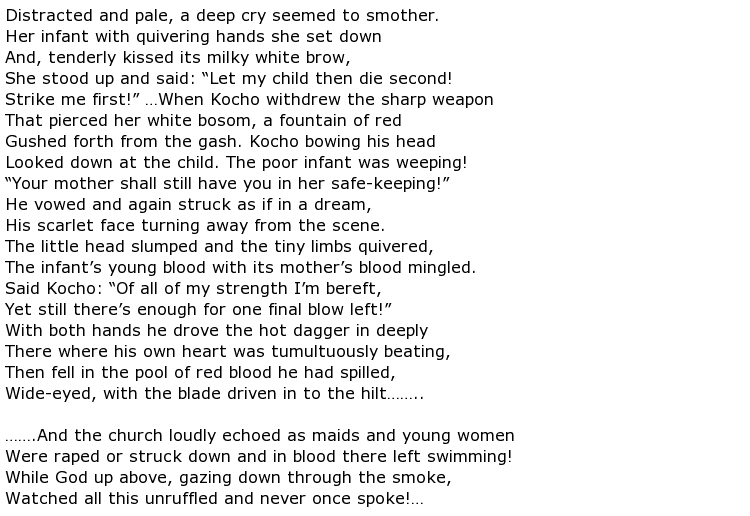 Ivan Vazov was one of Bulgaria’s famous sons whose name lives on with a theatre in the capital, Sofia, being named after him, along with the national library. He lived through a highly volatile period in his country’s history where Bulgaria struggled constantly to be released from the yoke of Ottoman tyranny. He could probably be accurately described as a revolutionary poet who also wrote plays and novels, and he was exiled more than once for his own safety.
Ivan Vazov was one of Bulgaria’s famous sons whose name lives on with a theatre in the capital, Sofia, being named after him, along with the national library. He lived through a highly volatile period in his country’s history where Bulgaria struggled constantly to be released from the yoke of Ottoman tyranny. He could probably be accurately described as a revolutionary poet who also wrote plays and novels, and he was exiled more than once for his own safety.
He was born Ivan Minchov Vazov, sometime in 1850. His home town was Sopot, located in the attractive Rose Valley of Bulgaria, a country very much under the control of the Ottoman Empire. His parents were very supportive of their son’s penchant for writing and made sure he received the best education possible. This started in Sopot and then continued in Kalofer where he became an assistant teacher. He had to return to Sopot for about a year to help out his at his father’s grocery business but then Ivan was sent away again to school, this time in Plovdiv.
During this period he really found his interest in poetry and yet was not free to spend as much time studying literature as he would have liked. He found himself in Romania, in the town of Olteniţa, where he studied business without much enthusiasm. Moving on once more, he met the Bulgarian poet and revolutionary, Hristo Botev. This was in Brăila and Botev was to have a great deal of influence over Ivan’s writing.
At the age of 24 Ivan was inspired by the growing movement in Bulgaria to split from the Ottoman empire. He joined the revolutionaries in Sopot and they drove their country towards the 1876 April Uprising which, unfortunately, failed to achieve its goals. Vazov, and other survivors of the movement had to flee to Romania and he found himself in Galaţi. Here, very much inspired by Hristo Botev, he wrote a number of poems on revolutionary themes, publishing something for the first time in 1876. This was called Priaporetz and Gusla and he followed that, a year later, with Bulgaria’s Sorrows.
The Russo-Turkish War dealt such a blow to the Ottoman Empire that Bulgaria found itself, once more, an independent state in the year 1878. To commemorate this great victory Vazov wrote his famous piece Epic of the Forgotten which detailed much of the history of his country’s struggles to be free. Not surprisingly, though, a period of relative stability was short-lived and Vazov found himself once more in exile. This time it was in Odessa but he eventually made it back home aided by his mother. He spent the rest of his life either teaching or working as a prominent and much respected civil servant and, of course, writing as much as he could.
Vazov produced what is generally known as the best ever piece of Bulgarian literature in 1893; it was a novel about Ottoman oppression called Under the Yoke. On the same theme, he wrote the poem Kocho (The Defence of Perushtitsa) and a powerful section of it is reproduced here, describing a mother’s valiant but fatal defiance against the Ottoman terror:

Ivan Vazov died in Sofia in 1921, aged 71.

